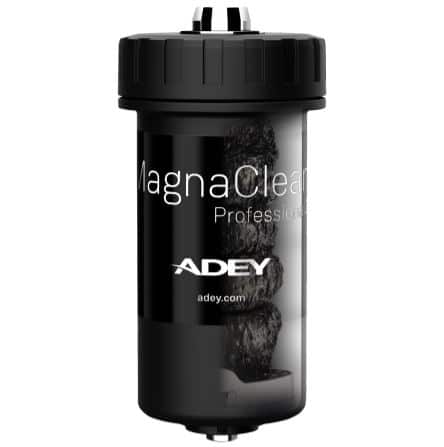Although homeowners in the colder northern sections of the United States and throughout Canada won’t likely need their heating systems for another three, maybe even four months, our long cold seasons can take a heavy toll on hydronic heating systems which means contractors should make sure their are well prepared for calls about noisy or inefficient boilers.
Here’s a rundown on some of the more common boiler and component problems facing homes and businesses and what can be done to remedy them.
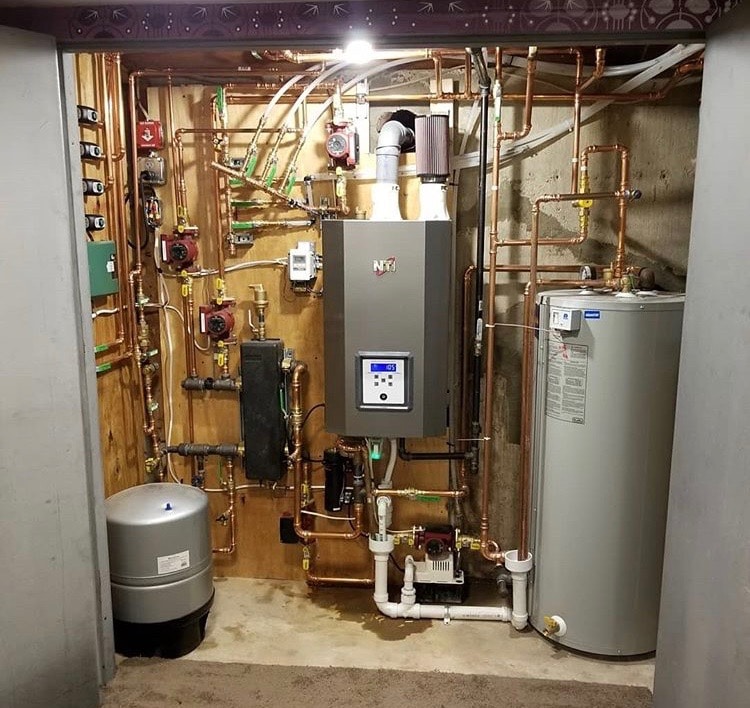
Radiator cold spots
If your home’s or business’s radiators are not uniformly hot throughout, the following could be the culprit:
- air in the piping and components
- a malfunctioning component or part, such as a circulator or a valve
- rusty or corroding system pipes that ultimately fill the radiators with magnetite
What is magnetite? As air and water mix inside the pipes of an untreated hydronic heating system, an iron oxide sludge, called magnetite, forms. As these small (.0003-micron) particles circulate and accumulate inside the system, they begin to adversely affect heat-transfer rates and boiler efficiency. Eventually, iron oxide buildup can lead to equipment damage and/or failure, resulting in costly repairs.
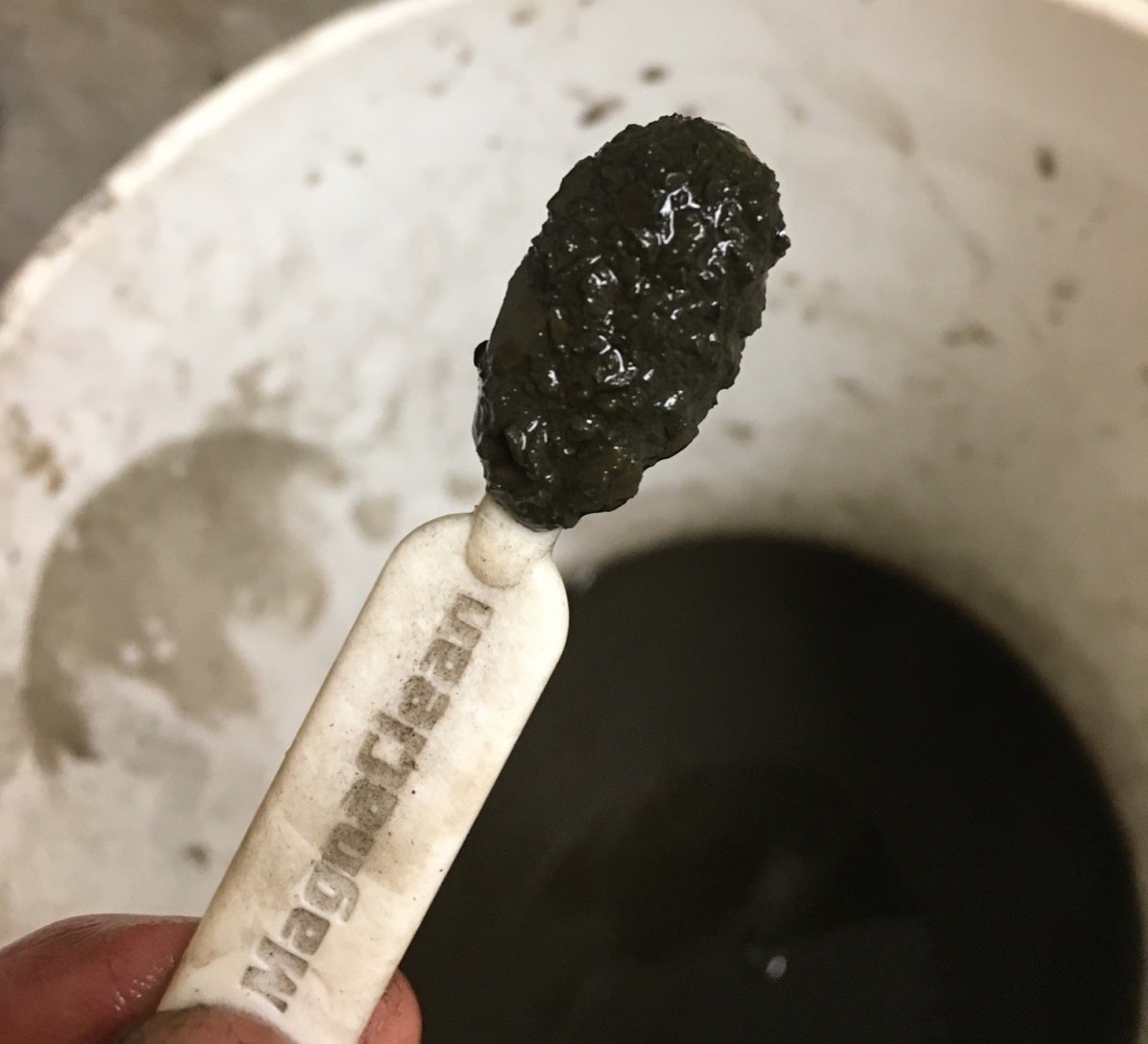
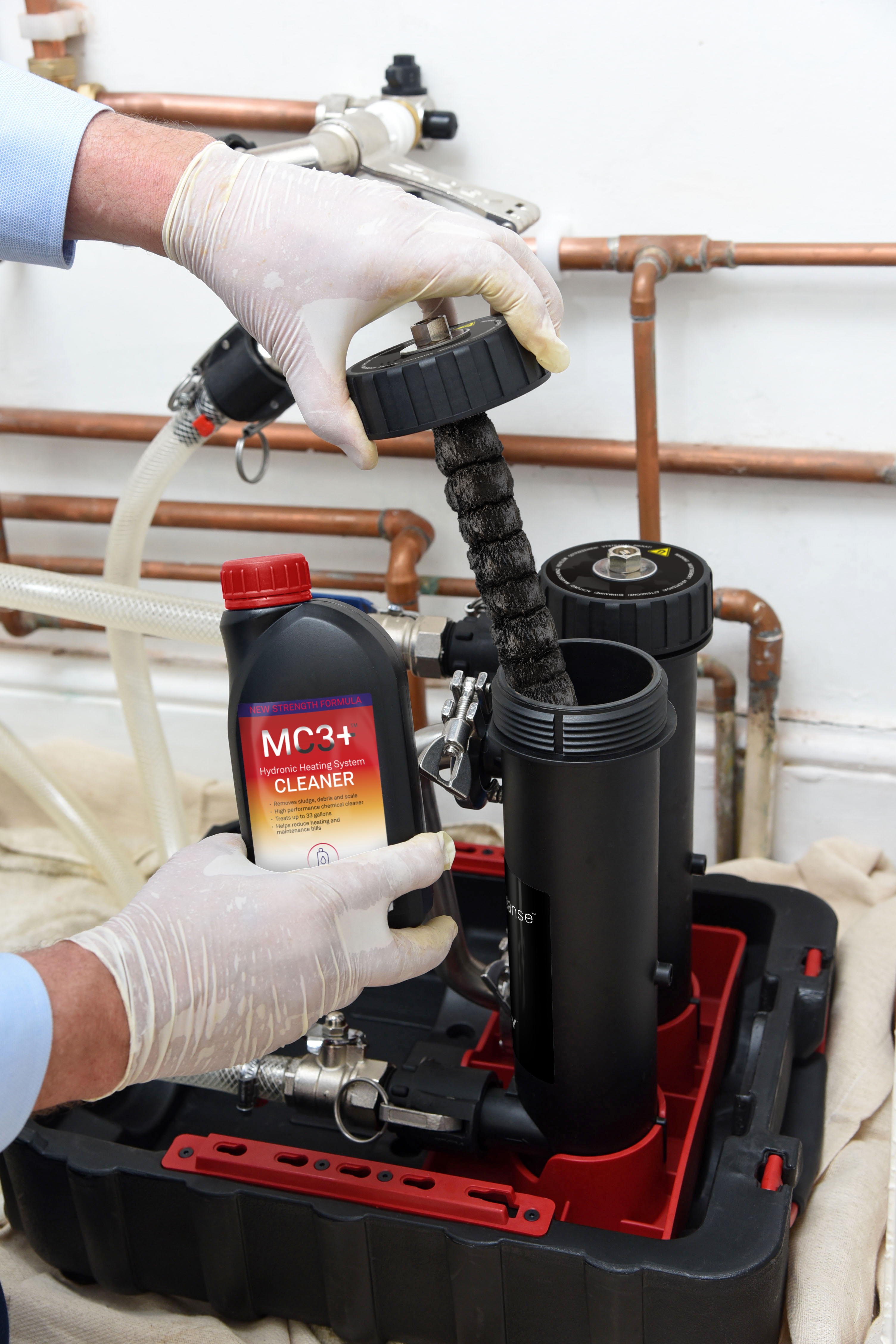
Just how extensive is this problem? A recent study analyzing returns to European pump manufacturers found that nearly 70 percent of circulator returns consisted of failures triggered by iron-oxide buildup. The study also showed that more than 95 percent of the debris in hydronic heating systems consists of iron oxide.
The fix? To eliminate air in the system, first try bleeding your radiators. But if the cold-spot problems persist, bring in a professional plumbing and heating contractor to: (1) conduct a full system inspection; (2) upgrade failing parts; and (3) fully cleanse the system with a combination of an ADEY® MagnaClean® magnetic dirt filter, as well as a chemical cleaner, such as our MC3+™. This maintenance should remove not only the rust, but also all the other debris.
Noisy system
Maybe your boiler rattles every time it rolls into action. Maybe you are routinely treated to a chorus of bangs, gurgles, whistles and rumbles from elsewhere in the system. Regardless, such noise goes beyond mere annoyance; it might indicate more serious problems. Once again, air as well as a buildup of limescale are the most common culprits.
The fix? To eliminate the pipe noise, get rid of any trapped air by bleeding your radiators. If that doesn’t work, call a professional to flush the entire system of limescale and air. If the noise originates in your boiler, your service technician will work to remove limescale in the heat exchanger.
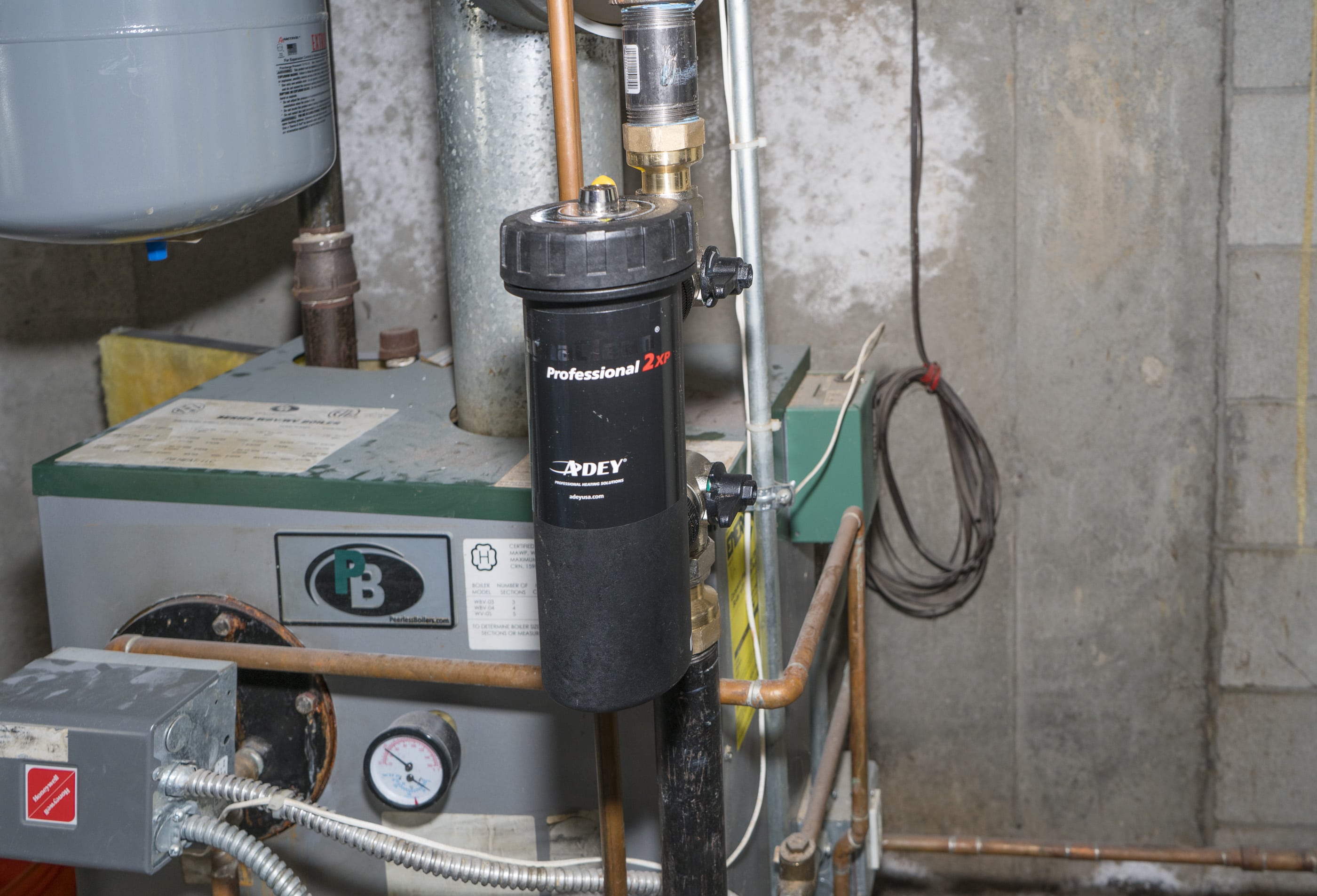
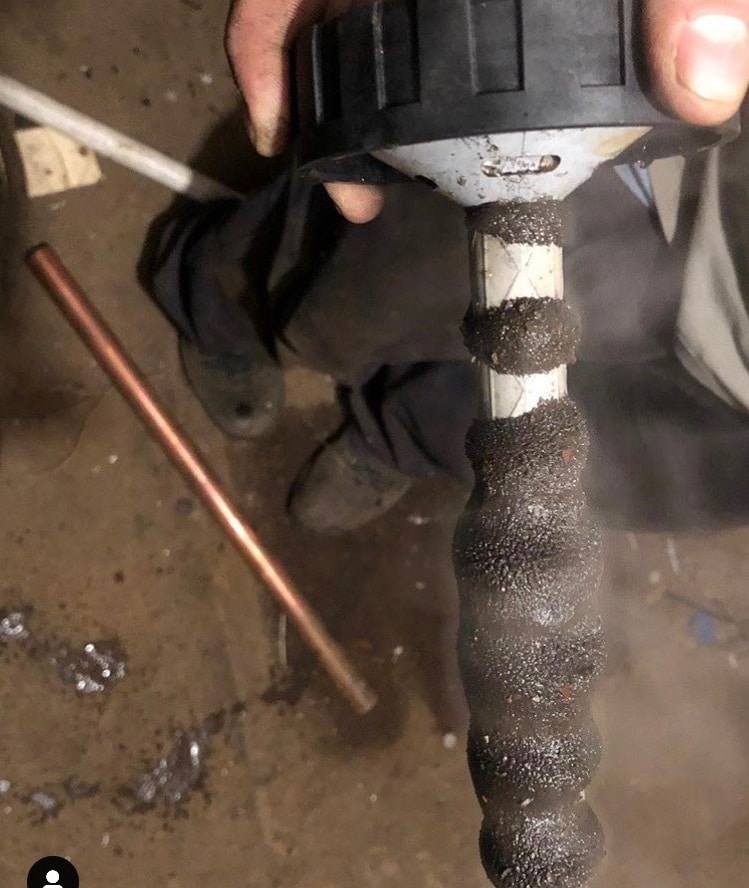
Leaks and drips
Water leakage from your boiler is never a good sign. Leakage usually means a breakdown is imminent. It’s a simple problem to spot. Is there any water beneath the boiler or around its pipes and tank? Causes can range from broken parts to corroded pipes
On the subject of leaks, it is often questioned whether cleaning chemicals cause leaks within hydronic systems. The answer to this is — no, if, of course, you are using correctly formulated chemicals, such as ADEY’s MC3+, which includes surfactants, dispersants, and inhibitors that make it pH neutral. The surfactants and dispersants help dislodge, lift and move the corrosion, while the inhibitors protect the vulnerable metals during cleaning.
The fix? Whether the problem stems from a damaged component or simple wear and tear, there’s only one answer for leaks and drips: Call a professional to check your boiler.
Complete protection
The rising popularity of high-efficiency boilers and the increased use of high-efficiency ECN (electronically commutated motors) pumps with these boilers, have helped lower fuel bills. That’s the good news. The downside: both of these positive trends can also create system-performance headaches for home and business owners.
For now, understand that both trends can lead to premature system and component failure because of the buildup of iron oxide sludge (magnetite) and other nonmagnetic debris. Both can rob hydronic heating systems of their high efficiency and superior performance.
The solution is magnetic dirt filtration, along with regular and proper system cleansing and protection. This is the only way to prevent the buildup of magnetite and the costly problems it can cause.
